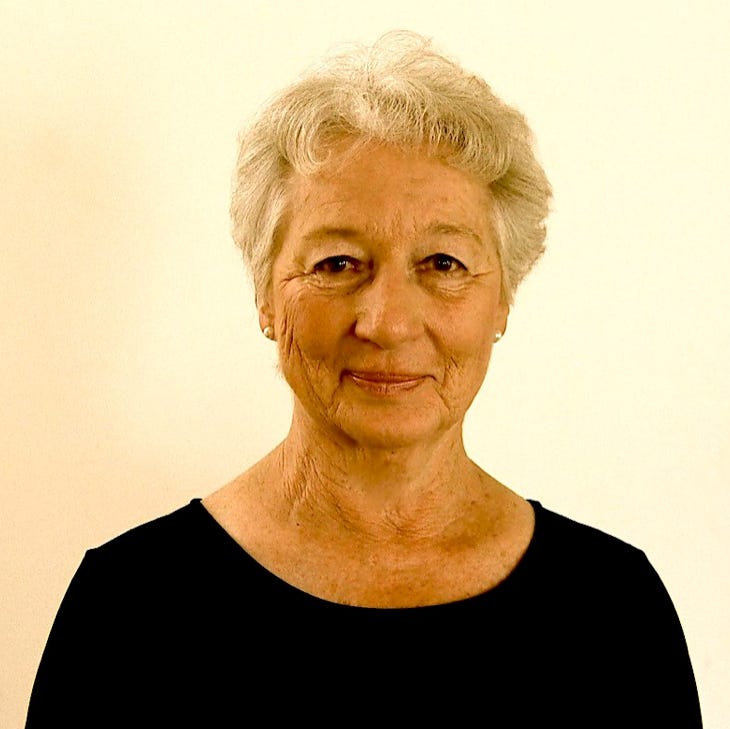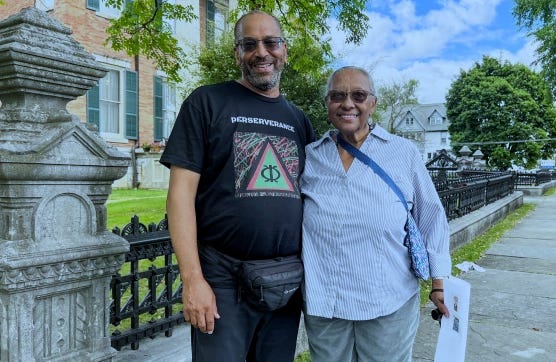Underground Railroad Free Press
News & Views on the Underground Railroad • Vol. XVII, no. 97, September 2022
Published bimonthly since 2006, we bring together organizations and people interested in the historical and the contemporary Underground Railroad. Free Press is the home of Lynx, the central registry of contemporary Underground Railroad organizations; Datebook, the community's event calendar; and the Free Press Prizes awarded annually for leadership, preservation and advancement of knowledge, the community's highest honors. Underground Railroad Free Press is emailed free of charge on the 15th of odd-numbered months. Please visit urrfreepress.com for more.
In This Issue
Announcing the 2022 Free Press Prizes
Leadership
Preservation
Advancement of Knowledge
Articles
Taking a Walk Over a 400-mile Underground Railroad Route
The 2022 Free Press Prizes
The prizes are the most esteemed honor bestowed in the Underground Railroad community. The purpose of the Underground Railroad Free Pressprizes is to recognize and honor the most outstanding contributions to contemporary Underground Railroad work in leadership, preservation and advancement of knowledge. The prizes also promote awareness and appreciation of contemporary Underground Railroad work to the general public, elected and other officials, governments, and key decision-makers by publicizing prizes and winners. As the prizes recognize that the Underground Railroad was an international enterprise, prize eligibility is extended to individual and organizational nominees from any nation.
The 2022 Free Press Prize for Leadership
The 2022 Free Press Prize for Leadership is awarded to Raul Rothblatt for unwavering dedication in saving a historic New York City Underground Railroad safe-house from destruction.
In November of 2014, Raul Rothblatt, a community organizer in the Brooklyn Borough of New York City, started a GoFundMe campaign to help save a modest Brooklyn home from demolition. This wasn’t just any home but Truesdell House, an important Underground Railroad safe-house and abolitionist haven operated by Thomas and Harriet Truesdell from 1855 through the end of the Civil War.
Rothblatt’s goal was to convert the home into a museum and cultural space. As he explains the neighborhood setting, “This used to be a hotbed of abolitionist activity. Now it's a hotbed of hotel speculation surrounded by 30-story hotels. We are the last holdout of a time when Brooklynites fought against slavery, when New York City was the financial capital of the Southern slave economy. The 19th century history will help to make the 21st century skyscrapers more meaningful.”
Free Press was notified when what was to be a long fight began in 2007 and was not finally won until February 2, 2021, when the City of New York declared Truesdell House a protected historic landmark immune to demolition. The 14-year fight was finally won with Raul Rothblatt leading all the way and Free Press reporting on the struggle for as long in eight issues.
Mr. Rothblatt describes himself as “Dad, proud Brooklynite, composer/cellist/bassist, and neighborhood activist.” He serves as Director of Community Affairs in the office of New York State Assembly Member Brian Cunningham. He is a graduate of the Liszt Academy of Music in Hungary and the University of California at Berkeley.
The 2022 Free Press Prize for Preservation
The 2022 Underground Railroad Free Press Prize for Preservation is awarded to author Barbara Lockhart for her nine years of research bringing back to life and thus preserving the vivid 1850s African American history of her own farm, and the remarkable life of Elizabeth Burton, its free Black owner 150 years before.
Lockhart’s research resulted in her multiple-awarded book, Elizabeth’s Field: Of Freedom and Bondage on Harriet Tubman's Eastern Shore (Secant Publishing, 2020). Lockhart’s and Burton’s farm is located in Dorchester County, Maryland, birthplace of Harriet Tubman, who makes appearances in the book. Elizabeth’s Field was reviewed in the July, 2022, issue of Free Press.
Much of Elizabeth’s Field was related to the author by her 84-year-old African American neighbor, Mary Taylor, who told Lockhart the intact oral tradition of the property and of the racist tribulations that the people who lived on Lockhart's farm and nearby endured 165 years ago. Lockhart, now 84 herself, deftly wove past and present into the revealing lesson of how wrongs can echo down through generations. This beautifully written story has not only preserved history but resurrected it.
The 2022 Free Press Prize for Advancement of Knowledge
The 2022 Underground Railroad Free Press Prize for the Advancement of Knowledge is awarded to the James E. Bonine House Underground Railroad Research Library of the Underground Railroad Society of Cass County, Michigan, for exemplifying what dedicated local organizations are capable of in uncovering and portraying regional Underground Railroad history.
Founded in 2015, the James E. Bonine House Underground Railroad Research Library has been developed into a first-class collection of local Underground Railroad history, personages and resources. Over the past seven years, the staff of the library has worked diligently collecting everything known about the Underground Railroad in Cass County, Michigan. The library is the home of collections of six Cass County Underground Railroad historians and of extensive local research that was gathered from many sources including notebooks on every family, black and white, known to have been involved with the Underground Railroad in the county .
In 2015, volunteers began organizing piles of collected information. By 2018, originals were scanned, copied and filed covering all aspects of the Underground Railroad in Cass County. The library had its own website, urscc.org, created, providing access to the world.
In the fall of 2018, the library announced it's official opening, both in person and online. In 2020, copies of everything in the online library were donated to nearby Western Michigan University ensuring that the story of the Underground Railroad in Cass County Michigan will exist in perpetuity. Bonine House Underground Railroad Research Library is listed in Underground Railroad Free Press’s Lynx registry of Underground Railroad organizations and in the National Park Service’s Network to Freedom roster.
Philadelphia Man Completes Over 400-Mile Walk Along the Underground Railroad in Honor of Harriet Tubman
This article is reprinted from an audio-visual presentation that first appeared on nbcnews.com. Free Press thanks the originator for the opportunity to broaden the reach of the article by providing it to our readers. ~~~~~~~~~~~~~~~~~~~~~~
By Claretta Bellamy
Kenneth Johnston of West Philadelphia always had a deep appreciation for Harriet Tubman and her work of freeing enslaved Black people. But instead of reading a book or watching a documentary to remember Tubman’s trek to freedom, Johnston put his shoes on and followed the same path she walked in her honor.
Johnston, 61, completed his over 400-mile trek, which he called a Walk to Freedom. His journey led him across New York state and along the routes of the Underground Railroad, stopping by historic Black sites and communities along the path.
Beginning in July, 2022, Johnston’s first stop was the Harriet Tubman Memorial in Harlem, New York. He continued on through the Hudson River Valley, across central New York, and ended his walks at the British Methodist Episcopal Church — the same church Tubman attended in Ontario, Canada.
“I was amazed,” Johnston said of his experience. “It was an incredible journey walking across New York state, particularly from Albany to Buffalo visiting many of the known Underground Railroad communities.”
This isn’t the first time Johnston performed a Walk to Freedom expedition. In December 2019, Johnston replicated Tubman’s journey to rescue her brothers in 1854 by walking 140 miles along the shores of the Choptank River in Maryland to Philadelphia. Johnston, who completed his 2019 journey in six weeks, said Tubman completed the trek in only four days, “which still blows my mind.”
During his voyage to Canada, Johnston visited historic sites like the Niagara Falls Underground Railroad Heritage Center, where he learned how the free Black community was instrumental in helping to shelter those traveling to Canada in search of freedom. He also stopped by the Cataract House, a hotel that employed many of the enslaved people as waiters. The hotel staff often served as agents for the Underground Railroad.
Aside from the history he learned along the way, Johnston said he felt a spiritual connection in certain places he stopped, like the African burial ground in Kinderhook, New York, where over 500 Black bodies were buried.
“In that place, that’s where you could feel that they were at peace,” he said. In other places, like a Dutch farm in Rotterdam Junction, New York, maintained by the Schenectady County Historical Society, Johnston said he could feel the unsettled spirits of those who were enslaved that still had “a lot of angst in them.”
While Johnston said his journey was deeply meaningful, he admitted it also took a physical toll. On some days he would wake up before dawn to try to beat the sweltering heat, which had days of over 90 degrees. When he became fatigued, he said he would reflect on how enslaved people walked along those difficult paths without an opportunity to recharge or experience some of his modern-day luxuries.
“They didn’t have the special Italian hiking shoes that I have,” Johnston said. “They didn’t have the backpack and all those things that I have. Their journey was more rugged.”
Despite unavoidable challenges during his Walk to Freedom, Johnston said he received a lot of help along the way. He received support from Black and Quaker communities during his journey, with one biracial family even inviting him into their house to stay for the night. He also met Drink Like a Girl! founder Kelly Guilfoyle in Geneva, New York. Johnston said Guilfoyle was so inspired by his commitment to honor those who sought freedom that she helped him find hotels that sponsored his stay for free. Johnston also found help from those online who supported his Walk to Freedom mission. He received over $3,000 in donations for travel expenses from the GoFundMe account he had set up in July.
One of Johnston’s most treasured moments was on Aug. 9 when he traveled through Auburn, New York, meeting Judith Bryant, Tubman’s great-great grandniece. While there, Johnston visited Tubman’s grave.
“It helped me connect to Harriet Tubman even more in her life by meeting her descendants,” Johnston said.
Now that his journey is complete, Johnston said he plans on taking a break before venturing to new paths, including a slave trail stretching over 1,000 miles from Alexandria, Virginia, to New Orleans. He also plans to return to Puerto Rico, which he visited in 2019 following Hurricane Maria, where he walked across the island and spoke with families and artists whose lives were affected by the storm. He also hopes more of these important trails are recognized.
“I would love to see more signage in the promotion of a freedom trail across central and western New York because our story is an American story,” he said. “It was Black and white communities that helped freedom seekers get to Niagara Falls and Buffalo to be able to make that crossing into Canada. It was really an integrated movement in the racial movement.”







